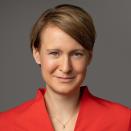Keynote speech by Christian Danielsson, European Commission
A clear commitment to a common perspective - that was the message Christian Danielsson, Director General for Neighbourhood and Enlargement Negotiations at the European Commission, delivered from Brussels to Berlin when visiting DGAP on Tuesday. Presenting the new enlargement strategy for the Western Balkans published by the European Commission in February, he made it clear that this renewed initiative is based on mutual interests, and urged leaders in the region to seize this window of opportunity. The strategy explicitly acknowledges shortcomings in the region, particularly related to the rule of law, governance and corruption--and calls for progress on long-due judicial and electoral reforms. Danielsson also made a case for closer regional cooperation in the economic sector to unleash the “joint potential” and establish good neighbourly relations. This, he says, must go hand in hand with reconciliation efforts, “addressing the wounds” left by the violent disintegration of the former Yugoslavia.
At its meeting at the end of June, the European Council will decide on the Commission's recommendation to begin accession talks with Albania and the Former Republic of Macedonia. As the latter has now found an agreement with Greece regarding its disputed name, it is now Albania that faces the more difficult path to accession: The Netherlands opposes accession, and the German parliament is undecided. Danielsson highlighted the extensive efforts both governments have displayed, underlining that rewarding their hard-won reforms would send a very positive signal to the region as a whole.
Presenting the perspective of the German parliament, MP Manuel Sarrazin of the Green Party voiced his scepticism with regards to the outcome of the parliamentary vote on the matter, especially given the hesitance among members of chancellor Merkel's conservative party CDU. He predicts that further conditions will have to be fulfilled before a first accession conference, which will determine further steps.
Hedvig Morvai, Executive Director of the European Fund for the Balkans, highlighted the special momentum created by the strategy and subsequent meetings throughout the year--the stakes and the expectations in the region are very high. In reference to the Thessaloniki Summit of 2003, she urged the EU to take advantage of the current international turbulence and create a new narrative, and to engage in a dialogue with citizens. Crucial challenges shared by both regions illustrate the “necessity to shape a new EU together, one that is for the 21st century”.
For her contribution, DGAP Research Fellow Sarah Wohlfeld focused on the external actors influencing the Western Balkan countries and possibly hampering cooperation, with Russia leading the way. The Kremlin does not seem to pursue a long-term strategy and can offer no alternative to EU accession, but it acts as a spoiler, particularly with regard to its close allies Serbia and the Serbian entity in Bosnia-Herzegovina, but also through pro-Russian factions in Montenegro and Macedonia.
During the ensuing discussion facilitated by Dr. Jana Puglierin, Head of the Alfred von Oppenheim Center for European Policy Studies at DGAP, all participants emphasised the importance of increased regional cohesion and the fragility of the current momentum, urging leaders both within the EU and in the Western Balkans to embrace the common strategy to implement reforms and include their citizens in this journey towards accession.

